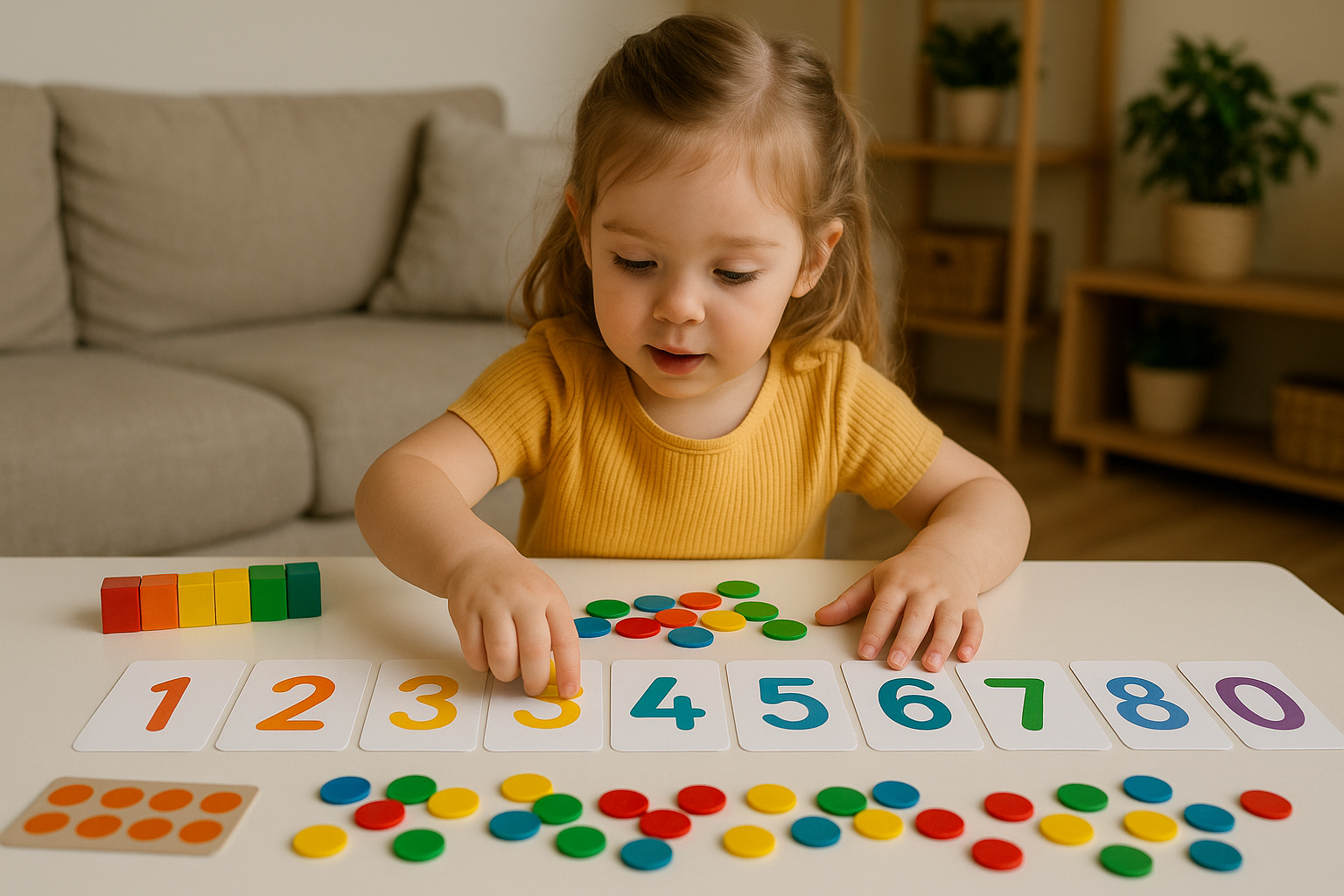Mathematics isn’t just about numbers on a page—especially in early childhood. For preschoolers, math is best learned through play, hands-on experiences, and real-world problem-solving. You don’t need flashcards or apps to teach your child early math concepts. With a little creativity and common household items, you can build a strong math foundation right at home.
In this article, you’ll learn 10 fun, effective ways to teach early math skills to your preschooler in your everyday routine.
Why Early Math Matters
Children who develop early math skills tend to:
- Perform better in school later on
- Develop critical thinking and reasoning skills
- Learn to recognize patterns and relationships
- Build confidence with numbers
- Improve problem-solving abilities
Early math isn’t about memorization—it’s about understanding how numbers relate to the world around them.
1. Count Everything
Make counting a natural part of your daily routine.
Examples:
- Count how many grapes go into a bowl
- Count steps while walking
- Count blocks while stacking
- Count how many toys need to be cleaned up
Start with small numbers and build from there. Use fingers to help with one-to-one correspondence.
2. Number Hunt
Hide number cards (1–10) around the house and turn it into a scavenger hunt.
Each time your child finds one:
- Say the number
- Show the same number of fingers
- Find that many objects (e.g., “Let’s find 4 spoons!”)
Variation: Write numbers with sidewalk chalk outdoors and hop to each one in order.
3. Use Snack Time for Math
Turn snack time into math time.
Ideas:
- Sort cereal by shape or color
- Make patterns with fruit pieces (apple-banana-apple)
- Divide crackers into equal groups
- Add or take away snack items while talking through the math
“You had 5 grapes and ate 2—how many are left?”
4. Match Numbers to Quantities
Use number cards or draw numbers on paper.
Invite your child to:
- Match the number “3” with 3 toy cars
- Place the right number of pom-poms on a card
- Stick that many stickers on a page
This reinforces number recognition and quantity awareness.
5. Measure with Everyday Objects
Teach measurement by using hands, blocks, or toy animals to measure things around the house.
Questions to ask:
- “How many spoons long is the table?”
- “Which toy is taller?”
- “Is this box heavier or lighter than your book?”
Use vocabulary like long, short, tall, heavy, light, big, and small.
6. Make Patterns
Patterns teach early algebraic thinking.
Use objects like:
- Beads
- Colored blocks
- Snacks
- Buttons
Create AB patterns (red-blue-red-blue) or ABC patterns (apple-banana-grape) and ask your child to copy or extend them.
7. Sort and Classify
Sorting is a foundational math skill.
Provide materials like:
- Socks
- Toy animals
- Buttons
- Kitchen utensils
Sort by:
- Color
- Size
- Shape
- Type
Ask, “Why did you put these together?” to promote reasoning.
8. Play Board Games That Involve Numbers
Simple games like Chutes and Ladders, Candy Land, or dice games help build:
- Number recognition
- Counting skills
- Taking turns
- Following rules
Make your own number path game with paper and let your child roll a die and move along.
9. Sing Counting Songs
Songs with numbers help build rhythm, memory, and sequencing.
Popular ones include:
- “Five Little Monkeys”
- “One, Two, Buckle My Shoe”
- “Ten in the Bed”
- “Five Little Ducks”
Use finger puppets or toys for added engagement.
10. Create a Math Box
Designate a small box or drawer filled with hands-on math tools, such as:
- Dice
- Number cards
- Measuring spoons
- Tongs and pom-poms
- Coins
- Beads and string
Let your child explore freely or guide them through simple challenges using the tools.
Make Math a Daily Adventure
Early math doesn’t have to be taught at a desk. It’s everywhere—in the kitchen, the living room, the park, and the grocery store. The more you integrate it into daily life, the more naturally your child will absorb key concepts.
Remember:
- Focus on exploration, not perfection
- Ask open-ended questions
- Let your child guide the pace
- Celebrate small “a-ha” moments
By making math fun and interactive, you’ll help your child build confidence and curiosity that will support them for years to come.
